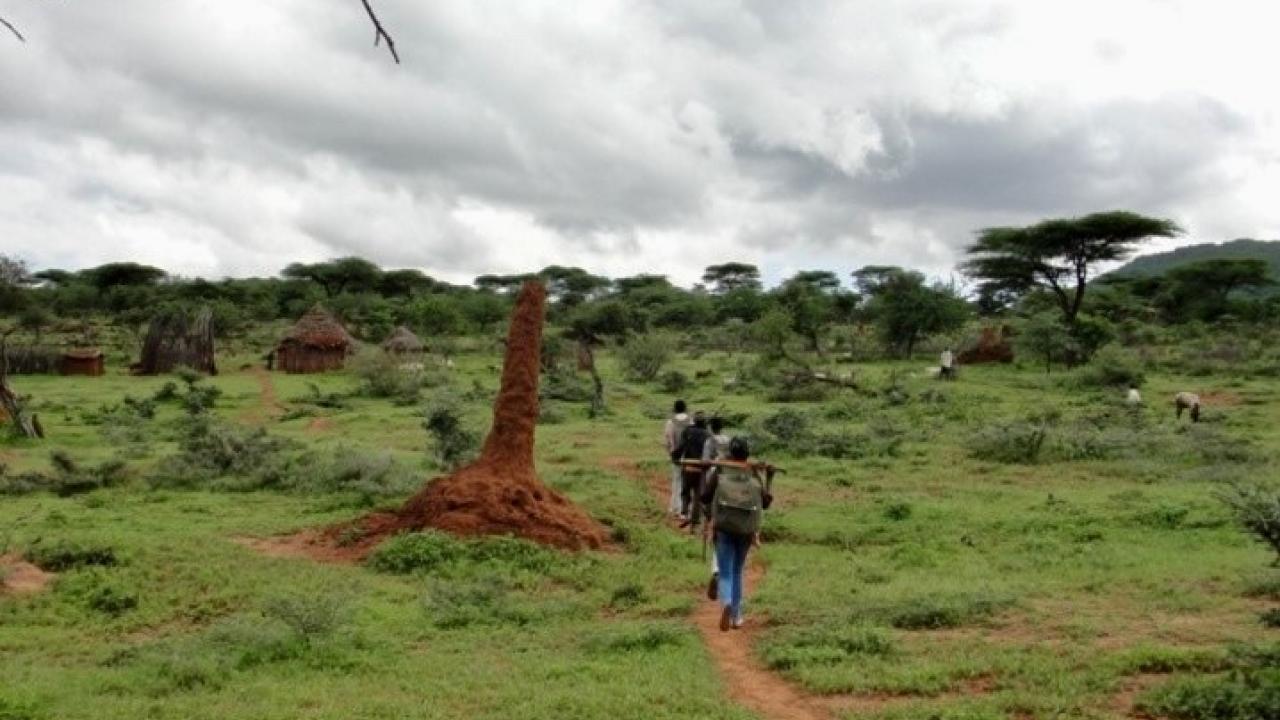
Going "ALL-IN" on Capacity Strengthening
Quick Summary
- Three years into the program, research teams from the original cohort of twelve ALL-IN project are utilizing the funding, access, and new connections to expand their reach, in turn training others - prompting a cascading effect of knowledge sharing.
Going ALL-IN on Capacity Strengthening
A central mission of USAID's Advancing Local Leadership, Innovation, and Networks (ALL-IN) initiative has been supporting historically under-resourced local researchers to take the lead in setting research priorities while also strengthening their capacity to implement and manage large-scale research awards. Three years into the program, the initiative is accomplishing that and more. Research teams from the original cohort of twelve ALL-IN project are utilizing the funding, access, and new connections to expand their reach, in turn training others - prompting a cascading effect of knowledge sharing that is helping to create sustainable pathways for local development policies.
Empowering Policymakers: Encouraging Impact Evaluations
The ALL-IN project The Distributional Impacts of Large-Scale Land Transactions in Ethiopia, in collaboration with co-host organizations, the University of Gondar, Center for Effective Global Action (CEGA), International Food Policy Institute (IFPRI), and Ethiopian Institute of Agricultural Research, recently organized an Impact Evaluation Training Workshop for Policymakers. This workshop brought together 21 participants from various governmental institutions, including the Ministry of Agriculture, Ministry of Health, and Commercial Bank of Ethiopia, among others.
Facilitated by Dr. Solomon Zena Walelign, the training introduced policymakers to the significance of impact evaluation in policymaking. It equipped them with fundamental concepts and methods of impact evaluation, encouraging discussions on practical case studies from Ethiopia. This initiative not only broadened the understanding of policymakers on the importance of monitoring and evaluation but also fostered a network among policymakers and researchers from different sectors and ministries. This form of training can also play a pivotal role in bridging the evidence gap that often exists between research findings and policy formulation.
Building Technical Writing Skills: Enhancing Research Impact
The research team leading the project “Digital Innovations to Improve Market Access for Horticultural Produce in Malawi” recently conducted a three-day technical workshop designed as a refresher or a jumpstart for students and early researchers at Lilongwe University of Agriculture and Natural Resources (LUANAR). Twenty-six participants (13 males and 13 females), consisting of 18 graduate students and 8 researchers, attended.
The workshop focused on honing technical writing skills to help ensure research findings are communicated clearly. The topics included manuscript and article development, different types of articles and reviews, peer reviews and software and tools that aid in scientific and technical writing. The knowledge shared at the workshop will improve the quality and reach of the research conducted by these early-career academics. The workshop also provided an opportunity to establish networks with peers and potential research partners.
Strengthening Women's Resilience: A Tangible Impact
The spillover effects of the ALL-IN capacity strengthening mission extends beyond the academic and the policy spheres directly into local communities. One example is the “Strengthening the Resilience and Empowerment of Women Smallholder Farmers in Uganda” project. Led by researchers from Makerere University, this project is taking a comprehensive and hands on training approach to bolster women’s resilience.
Recently, over 640 participants in Isingiro and Alebtong districts benefited from knowledge sharing on business skills, Gender Transformative Approaches (GTA), and Gender Responsive Climate Smart Agriculture (GRCSA). This collaborative effort between Makerere University, District Agricultural Officers, and Community Development Officers is empowering women to improve their existing businesses and manage finances effectively. Through these training sessions, communities gain awareness of gender roles and valuable business skills, strengthening their capacity for economic empowerment.
The Ripple Effect Continues
ALL-IN’s capacity strengthening activities are demonstrating the impact of investing in local partnerships and knowledge sharing. By empowering researchers, policymakers, and communities, ALL-IN catalyzes positive change and multiplying the returns on the project’s initial investment.
For more information and links to the original articles, please visit the website of the International Centre for Evaluation and Development
